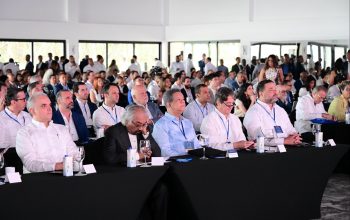news
GFDD and FUNGLODE Organize Panel Discussion on Payment for Ecological Services
September 1, 2009
 |
On August 18, Global Foundation for Democracy and Development (GFDD) and Fundación Global Democracia y Desarrollo (
FUNGLODE), incollaboration with the Organization of the American States’ Department of Sustainable Development (DDS/OAS), organized a Panel Discussion on Payment for Ecosystem Services (PES) in Latin America and the Caribbean at FUNGLODE headquarters in Santo Domingo, Dominican Republic. The innovative and encouraging tool for the conservation and protection of the environment, consisting of payment for the ecological benefits generated by a natural resource, was discussed at
length by the panelists, including Professor Jose Rafael Almonte, Vice-Minister for Planning and Development, Dominican Ministry of Environment; Dr. Oscar Mena Tamayo, Chief Advisor for Natural Resources Management and Protection Program, German Technical Development Agency in the Dominican Republic; and Rodrigo Martinez, Environmental Economist, Department of Sustainable Development, Organization of American States.
The discussion, moderated by FUNGLODE Director of Environment, Energy and Sustainable Development Center of Studies, Omar Ramírez, took place in front of an engaged and motivated audience. Vice-Minister Almonte began the conversation by discussing the initial attempts to develop a Payment for Ecological Services (PES) program in the Dominican Republic back in 2001 and the progress achieved seven years later with one full-fledged
project in the Northern Yaque River Basin and other projects in the works, like the conservation of the habitat of a migrant bird, the bicknell’s thrush, a spices that breeds in the summer in Vermont, US, but spends most of the year in the Dominican Republic. A detailed description of the process from conceptualization, to the creation of a legal framework to operate in, to the drafting of the law presently being discussed in Congress was presented. The vision and leadership shown
by Minister of the Environment, Omar Ramirez, during a critical period of national strategy formulation and the development of alliances was publicly acknowledged and praised.
project in the Northern Yaque River Basin and other projects in the works, like the conservation of the habitat of a migrant bird, the bicknell’s thrush, a spices that breeds in the summer in Vermont, US, but spends most of the year in the Dominican Republic. A detailed description of the process from conceptualization, to the creation of a legal framework to operate in, to the drafting of the law presently being discussed in Congress was presented. The vision and leadership shown
by Minister of the Environment, Omar Ramirez, during a critical period of national strategy formulation and the development of alliances was publicly acknowledged and praised.
The purpose of this legislation is to create a national system of compensation for ecological services, encouraging the creation of PES programs aimed at conserving natural resources. The benefits of
these programs are instrumental to alleviating poverty, conserving and preserving the environment and the value of the land; protecting against the devastating consequences of climate change; preserving and conserving and landscapes and endemic habitats. The creation and development of these programs involves raising awareness and informing communities and stakeholders, training at several levels and identification of financial sources. The involvement of local communities in these programs
raises their awareness of the value of the environment, making their men, women and children more educated and responsive citizens.
these programs are instrumental to alleviating poverty, conserving and preserving the environment and the value of the land; protecting against the devastating consequences of climate change; preserving and conserving and landscapes and endemic habitats. The creation and development of these programs involves raising awareness and informing communities and stakeholders, training at several levels and identification of financial sources. The involvement of local communities in these programs
raises their awareness of the value of the environment, making their men, women and children more educated and responsive citizens.






